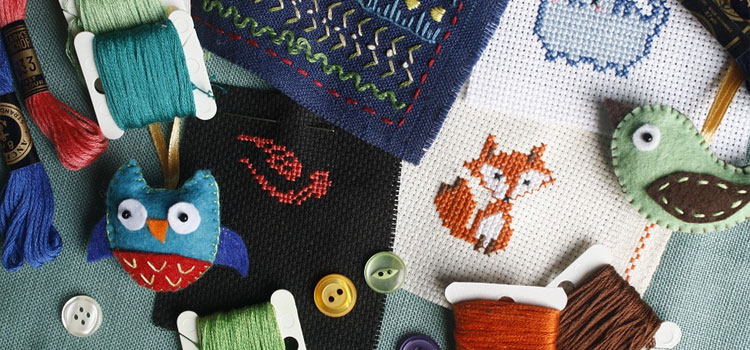Anyone who has built a clothing business, whether big or small, will have to decide which path to take: whether to create products from scratch or buy white label products instead. It’s one of the many decisions fashion brands and clothing stores should consider early in the business planning. And rightly so, because this decision would greatly affect the company’s budget, marketing, and other future endeavors.
- Inbox Dollars - Get paid to check your email. $5 bonus just for signing up!
- Survey Junkie - The #1 survey site that doesn't suck. Short surveys, high payouts, simply the best.
- Nielsen - Download their app and get paid $50!
The term “white label” originated from the music industry. In the past, when DJs and radio stations receive demos from artists, they place white labs on the discs or tapes to keep competition from seeing the details of the new music they just played. The term has since reached other industries and is used to describe business deals wherein manufacturers produce a particular product and distributes this to multiple resellers. The resellers simply receive the products with their own customized, branded labels.
White-labeling has been used in ecommerce more than any other industry. In retail and fashion, the white-label term refers to the white label where the company’s logo and marketing is placed.
It’s the Secret of Huge Retailers
Big retail stores are able to sell various items with their branding, even without finding suppliers and going through the entire production and quality testing processes. Because the third-party manufacturers will be the one sewing labels into the product, retail stores are able to sell the clothing straight from delivery.
The main advantage of white-labeling is the low cost involved in stocking items to sell. This is particularly useful if you’re starting out your online clothing store without funds to pay for equipment, labor, and technology.
However, companies have two options when it comes to white-labeling. They could either:
- buy white label (what huge retailers do)
- sell white label (what smaller companies do)
Buying White Label Clothing
As a newbie in the fashion industry, going with a white label route reduces the chance of issues from sourcing to production. Other benefits and disadvantages of buying white-label clothing include:
PROS
- No huge investment required for equipment, labor and technology
- No need to conduct trial-and-error
- Focus on other important stuff, such as marketing products
- Save money by buying in bulk
CONS
The downside to buying white label clothing is that there is no customization involved in the process. This means you can’t dictate a manufacturer about things like fabric material, design, fit changes and so on. You’re only given a catalog of stock clothing to choose from.
This route is ideal for companies that prefer to begin the business with a bang. Because their initial investment can all be used straight to buying white-label clothing, the chances are high that the first round of products are professionally made as if the company has been doing this for years. Even reputable companies can suddenly switch to buying white-label clothing during busy seasons or whenever supplier issues occur.
Selling White Label Clothing
Smaller companies that want to expand their market, but don’t have much marketing experience can sell white label clothing to increase sales. However, this isn’t a perfect business model either.
PROS
- No marketing involved – once the items are delivered to the purchasing company, they’re already sold
- Only sell products you know how to produce
- Increase sales with every third-party company that buys your clothes
- Focus your energy with what you love, whether it’s hand-sewing wedding dresses, or producing clothes in bulk manually
- Save advertising/marketing money
CONS
If you’re only starting out and have no experience with clothing production, it may cost your company a lot money when you’re still looking for vendors, equipment, or people. In addition, if your company has little manpower, they may not be able to handle higher volumes of clothing production. In most cases, the purchasing company dictates the project deadline.
If your clothing business already has a following, don’t expect to get credited for your work because as soon as you decided on selling white-label clothes, you can’t tell anyone if a huge retailer is selling these clothes with their own label.
This route is ideal for small companies who wish to expand their market quickly, but don’t have enough funds to accommodate an expansion. By selling white-label clothing, companies will be able to increase their demand, meet more third-party companies willing to stamp their labels on white-label clothing, and sell more items at a faster turnaround rate than going the retail route.
The Bottom Line
Whether you’re buying or selling white-label clothing, the bad news is you’ll lose some control over the project either at the production level or marketing level. But if losing this control means your company will be able to benefit from the potential for partnerships and business growth white-labeling could offer your clothing line, then maybe you should look into this business model.





